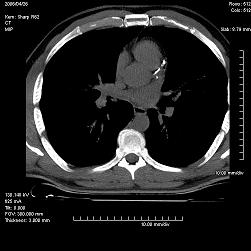
Tom came into the office ready for a confrontation.
Tom's wife insisted that he see me to discuss the implications of his CT heart scan score of 459. At age 50, this was clearly bad news that placed Tom in the 99th percentile (worst 1% of men in his age group).
But Tom had already undergone a stress test. There had apparently been a small abnormality, and a heart catheterization had been performed by another cardiologist. "They told me they didn't need to do anything. No stent, no ballon, no bypass, nothing!"
I asked, "Did they tell you that there was any plaque or blockages seen?"
"Yeah, but he said it was nothing. So the heart scan was wrong!"
I've been here many times before. I explained to Tom that, no, his heart scan was not wrong. All the tests he'd undergone siimply provided a different perspective on the same disease. You could say:
--The stress test, being a test of blood flow, may have been abnormal because of the abnormal constrictive behavior of arteries containing plaque, known as "endothelial dysfunction", because the inner lining of arteries (the endothelium) control the tone of the artery. Abnormal constriction in arteries with plaque is quite common.
--The catheterization simply showed that no plaque had collected in a configuration to block flow, thus no stent, etc., since flow was normal. But there was indeed plaque.
All three tests were right; none were wrong. They all provided a little different perspective on the same process. Of course, I favor the heart scan as the means to identify, precisely measure, and track the atherosclerotic plaque in your arteries. The stress test is too crude and only measures flow, the catheterization is not something you'd want to undergo year after year. Catheterization also is too crude a measure to precisely track plaque growth or reversal.
So I explained to Tom that, even though a stent or similar procedure was unnecessary, he remained at substantial risk for heart attack due to plaque "rupture". In fact, Tom's heart attack risk was 5% per year, or approximately 50% over the next decade. That is, indeed, substantial. In fact, you might say that, of the three tests Tom underwent, only the heart scan revealed his true risk.